
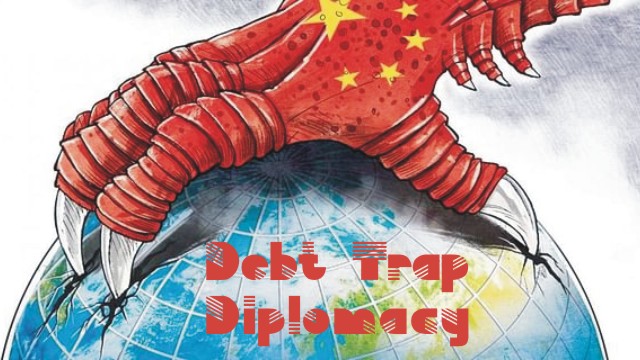
Lithuania’s foreign minister Gabrielius Landsbergis has said that Lithuania was being targeted by China with a “weapon of economic destruction” as Lithuania became the first EU member state to allow Taiwan to open a de-facto embassy under its name, in Vilnius (capital of Lithuania). As a result, Lithuania was hit by an economic blockade by China. Gabrielius added that weapons of economic destruction can be used in any other country and by any other non-democratic country that has issues with another country that it doesn’t like.
Weapon of Economic destruction
Now let’s just focus on the phrase “weapon of economic destruction”. Here in countries of Africa and Asia, the weapon of economic destruction is coming in form of debt traps. Often called ‘Debt Trap diplomacy’, it is said that China lures middle and lower-income countries into a debt trap through the belt and road initiative. China vitalizes dependency through opaque contracts, predatory loan practices that make nations sink in debt. This also undercut their sovereignty which denies them long-term and self-sustained growth.
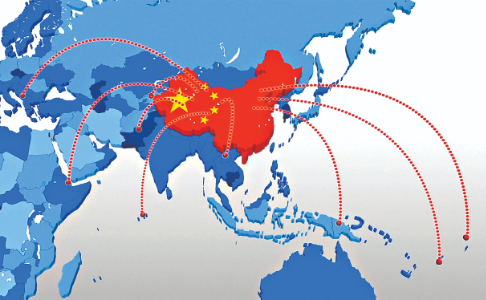 These debt traps, at last, lead China to acquire the assets of the country on default of loans. China’s belt and road initiative has led to a debate on the debt trap. It is often debated that China lures poor countries into debt traps. Almost every country in a debt trap is left with no other option but to surrender its assets to China.
These debt traps, at last, lead China to acquire the assets of the country on default of loans. China’s belt and road initiative has led to a debate on the debt trap. It is often debated that China lures poor countries into debt traps. Almost every country in a debt trap is left with no other option but to surrender its assets to China.
But now as China is expanding its influence through Belt and Road initiative China should also get aware of rising discontent in the local population of countries in a debt trap as BRI also costs the livelihood and employment of the local population.
Low middle-income countries fall into debt traps
Pakistan, Indonesia, Vietnam, Laos, Srilanka, Bangladesh, Malaysia, Myanmar, Cambodia, Papua New Guinea have major debt exposure to China. 42 countries have more than 10% of their GDP owed as debt to China. Pakistan owes a debt of around $ 27 bn to China. When the then Srilankan prime minister Ranil Wickramasinghe found that it would be difficult to pay loans taken to build the Hambantota project he agreed to lease the port to the Chinese for 99 years to a venture led by China Merchants Port Holdings Co. in return for $1.1 billion in 2017.
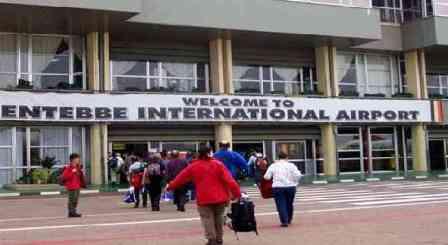 China reportedly took over Uganda’s only International airport (Entebbe Airport) on account of loan default although both countries refuted this news. Earlier Ugandan government had signed an agreement with China’s Exim bank to borrow $207 million to expand Entebbe international airport. Reportedly in the agreement, the immunity for its sovereign assets was waived. Some other African countries had to forfeit their national assets as they failed to repay debts.
China reportedly took over Uganda’s only International airport (Entebbe Airport) on account of loan default although both countries refuted this news. Earlier Ugandan government had signed an agreement with China’s Exim bank to borrow $207 million to expand Entebbe international airport. Reportedly in the agreement, the immunity for its sovereign assets was waived. Some other African countries had to forfeit their national assets as they failed to repay debts.
Ethiopia also faced the same problems. In 2019 Ethiopia had signed projects with Chinese companies worth $2.6 billion. Although Ethiopia hoped that these projects would increase employment for the local population soon their expectations crashed as there was an influx of Chinese laborers in Ethiopia. The number of Chinese laborers increased from 8000 to 12000. In Africa 50 out of 54 countries have taken loans from Chinese entities worth $153.4 bn from 2009 to 2019. Covid pandemic made things worse for these countries.
But one country’s tactics to counter China’s debt-trap policy and counter China growing arbitrary expansion should be analyzed. And that country is Pakistan. No country has shown strong bargaining and negotiating power in response to expansionism being done by China under BRI the way Pakistan has. The recent protest in Gwadar called ‘ Gwadar Ko Hukook De Tehreek’ can be seen as an example of this.
A curious case of Pakistan
Pakistan never gives its geostrategic space for free to any country be it the United States or China. Pakistan possesses different a kind of negotiating, bargaining, and blackmailing power. Let’s analyze this through Gwadar protests. In the second week of November 2021 massive protests were seen in Gwadar, Baluchistan against the mega-development plans of the port city which is a part of the China Pakistan Economic Corridor.
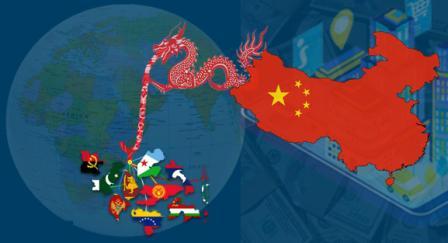
The Gwadar protests can be seen as the latest instance of Pakistan’s blackmailing power. Gwadar, where China is building an important geostrategic port, is situated in the Pakistani province of Baluchistan which is the most resource-rich area but it is the least developed area too. Fishing is the major source of livelihood.
The local populace left the fishing spot with the assurance that the construction of the port would improve their economic conditions and they will be provided employment by the Chinese company constructing the port. But there is a huge amount of discontent because local people were never given employment.
Moreover, local people allege that the foreign trawler mafia is eating up their marine resources that are the only source of their income. The Chinese trawlers are capable of catching small fishes like pomfret fishes too. Nothing is left for the local population. That’s why they demanded the eviction of giant fishing trawlers from the port of Makran.
China’s big fishing trawlers were issued licenses to fish in waters of the coast and the small trawlers of the local population were not able to compete with them. The local populace also demanded the removal of unnecessary security check posts and a soft border with Iran. They also don’t have access to basic amenities like sanitized drinking water, electricity, gas( even though it is the main resource of the region). At last, the Pakistani government had to agree to all demands put up by protestors in Gwadar.
The three proxies
But the twist is Pakistan is not like its other Asian and African counterparts. It has three kinds of proxies namely; religious, militant, political to deal with such things. Pakistani establishment doesn’t do anything directly but it protects its geo-strategic position very intelligently with the help of these kinds of proxies.
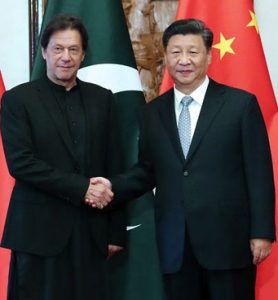 Pakistan is skeptical that it will be treated like Srilanka and African states. It is quite obvious as I mentioned above that it owes a debt of $27 billion to China. But the point to be noted is that the person who led the Gwadar Ko Hukook De Tehreek, Maulana Hidayat Ur Rehman, who is secretary-general of Jamat e Islami (Balochistan) is a traditional ally of the Pakistani military establishment.
Pakistan is skeptical that it will be treated like Srilanka and African states. It is quite obvious as I mentioned above that it owes a debt of $27 billion to China. But the point to be noted is that the person who led the Gwadar Ko Hukook De Tehreek, Maulana Hidayat Ur Rehman, who is secretary-general of Jamat e Islami (Balochistan) is a traditional ally of the Pakistani military establishment.
When the Gwadar protest was going on and people were participating in large numbers Pakistani military didn’t stop them from protesting. Cleary Maulana Hidayat Ur Rehman can be seen as a religious and political proxy of the Pakistani military establishment. Pakistan has dealt with the US in the same way. Pakistan took billions of dollars of military and civil assistance from the US to support the US in Afghanistan and oust the Soviet Union out of Afghanistan.
Gwadar is not the sole example. Pakistani military establishment recently activated its extremist religious proxy Tahreek e Labbaik Pakistan to fulfill its political ambitions to keep a check on civilian-led government led by Imran Khan. Moreover, after TLP protests in Islamabad in 2021, the government had to turn to the army as it failed to clear the protests and the Pakistani army facilitated the Agreement between the civilian government and TLP, and after that TLP’s imprisoned leader Saad Rizvi was released. Pakistani army officers were seen giving money to the protestors.
Pakistan military establishment doesn’t want to allow its geopolitical space to be used for free. The recent protest in Gwadar led by Maulana Hidayat Ur Rehman, a traditional ally of the Pakistani military can be seen as Pakistan’s attempt to counter China’s growing arbitrary expansion in the geo-strategic space of Pakistan.
Having a country’s government’s support is not enough
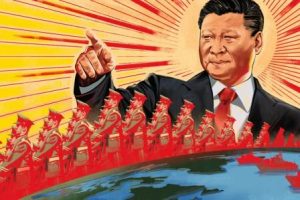
China should understand that having the support of a country’s leadership is not enough. Because having a government of a country with you doesn’t mean that the entire population is with you. If the interests of the local population are not taken care of then even a vicious policy of debt-trap diplomacy can backfire as it happened in Gwadar. It can spark the same discontent in the mind of the local population as it sparked in minds of Indian people after the arrival of the East India Company and British Raj in India. China should learn from infrastructure projects of the European Union that are not based on Debt trap diplomacy. ![]()
_____________
Also Read:
Centre’s Opaque Auction Rules For Pulses Rip Off Govt Coffers, Help Millers Strike Rich
Need to amend laws like UAPA to provide for punishment for those who slap false cases
Global Arms Trade: Who are the real winners?
Why not 40 pc tickets for women in Punjab and elsewhere?
Punjab – How a deadly cocktail of Agri-Water-Energy nexus going to destroy it?
North Pole and the ideological conflict of RSS & Hindutva
Politics of Symbolism: Dalit Chief Ministers in India

Disclaimer : PunjabTodayTV.com and other platforms of the Punjab Today group strive to include views and opinions from across the entire spectrum, but by no means do we agree with everything we publish. Our efforts and editorial choices consistently underscore our authors’ right to the freedom of speech. However, it should be clear to all readers that individual authors are responsible for the information, ideas or opinions in their articles, and very often, these do not reflect the views of PunjabTodayTV.com or other platforms of the group. Punjab Today does not assume any responsibility or liability for the views of authors whose work appears here.
Punjab Today believes in serious, engaging, narrative journalism at a time when mainstream media houses seem to have given up on long-form writing and news television has blurred or altogether erased the lines between news and slapstick entertainment. We at Punjab Today believe that readers such as yourself appreciate cerebral journalism, and would like you to hold us against the best international industry standards. Brickbats are welcome even more than bouquets, though an occasional pat on the back is always encouraging. Good journalism can be a lifeline in these uncertain times worldwide. You can support us in myriad ways. To begin with, by spreading word about us and forwarding this reportage. Stay engaged.
— Team PT


Copyright © Punjab Today TV : All right Reserve 2016 - 2024 |